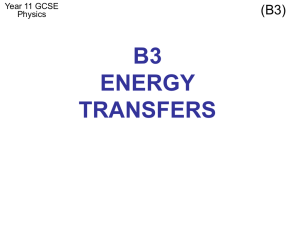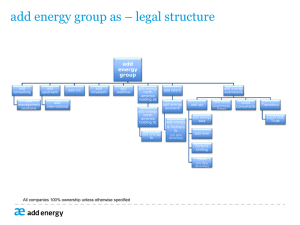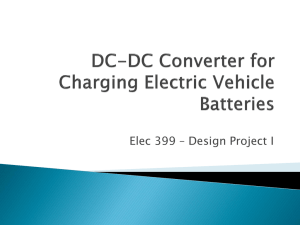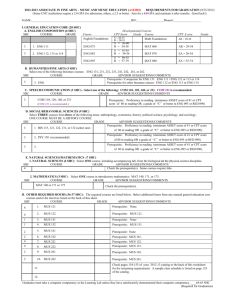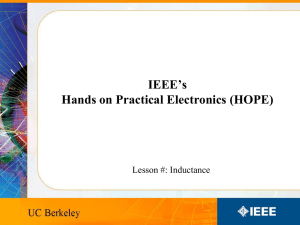Mojgan Nikouei-Harnefors
advertisement
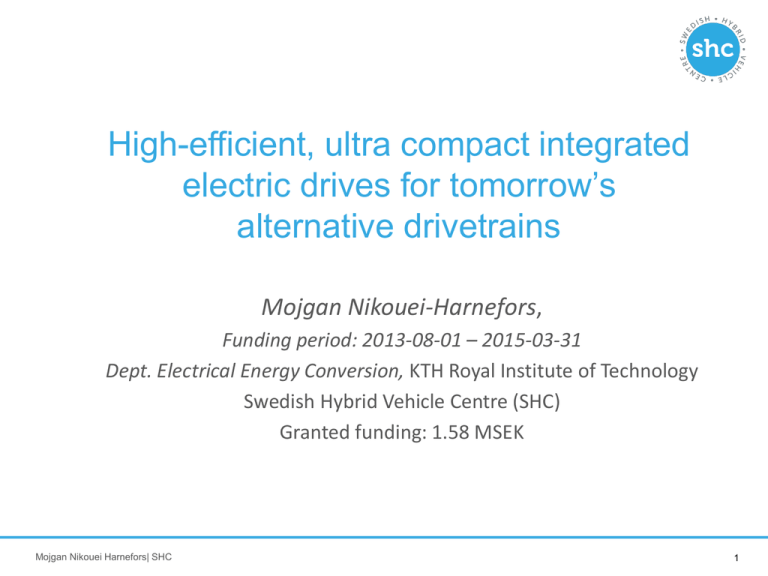
High-efficient, ultra compact integrated electric drives for tomorrow’s alternative drivetrains Mojgan Nikouei-Harnefors, Funding period: 2013-08-01 – 2015-03-31 Dept. Electrical Energy Conversion, KTH Royal Institute of Technology Swedish Hybrid Vehicle Centre (SHC) Granted funding: 1.58 MSEK Mojgan Nikouei Harnefors| SHC 1 Motivation Producibility Cost Size/Weight Integration EMI Cabling Fault tolerance Mojgan Nikouei Harnefors| SHC Loss 2 Integrated drives (examples) Volvo ReCharge Mojgan Nikouei Harnefors| SHC 3 Project overview Low-voltage MOSFETs Torque/ speed Gear box limitations Specifications Short circuit protection during short circuit Battery technology Level of fault tolerance of the electric machine and power electronics Interleaved switching to minimize battery losses? Performance Power converter Total drive cycle losses Converter control first evaluated on the real time simulator DC-voltage sharing between modules Torque dynamics and voltage stability during transient Should battery be splitted into several, parallel modules? Non-electrolytic capacitors Control Integrated electric drive Where to place the modules? (close to end windings or in axial middle) Control in fault modes Water or oil or only air? Forced air cooling on heat sinks integrated in chassies 1,2 or 3 coolant loops Parallel or series connection of coolant loops Mojgan Nikouei Harnefors| SHC Concentrated windings where each 3-phase set makes up a module Cooling Electric machine Thermal teeth? Rotor ferrites+SynRel Coolant loop design 4 Project overview Project team Ph.D student Funding Supervisor Swedish hybrid vehicle center (SHC) Oskar Wallmark Mojgan Nikouei Harnefors Mats Leksell Hui Zhang Lebing Jin Mojgan Nikouei Harnefors| SHC 5 Stacked polyphase bridges (SPB) Power converter Electric machine Battery 1. PCB Cell SPI CS1 CS2 CSN Multiplestar PMSM Central DSP Mojgan Nikouei Harnefors| SHC 2. PCB Cell N. PCB Cell RS 232 PC USB PC 6 Machine considerations Fractional-slot concentrated-winding (FSCW) - Short end-turns - Low cogging torque - High slot filling factor (segmented stator) Challenges - Suitable slot/pole combinations to obtain: - High fundamental winding factor - Low rotor losses - Ease of integration (identical converter sub modules) - Fault tolerance to handle a converter sub module fault Mojgan Nikouei Harnefors| SHC 7 Control considerations Converter sub module - Current control - Field weakening Master control - DC-link voltage control and communication (ongoing work) - Fault handling (ongoing work) Mojgan Nikouei Harnefors| SHC 8 Technical summary • New method of machine and converter integration • New converter topology (SPB converter) • Low voltage Si MOSFETs provide very high efficiencies and allows reasonably high junction temperatures • Future GaN may enable even lower losses • Low voltage, high switch frequency → very small, nonelectrolytic capacitors • Potential fault tolerance (limp home) is “in built” 9/31 Mojgan Nikouei Harnefors| SHC 9 Future/ongoing work • • • • • • Refine the design of the electric machine Develop a robust control technique Evaluate tolerance to faults Investigate power electronic manufacturing techniques Full-scale prototype evaluation Identify suitable applications for the converter topology 10/31 Mojgan Nikouei Harnefors| SHC 10 High-efficient, ultra compact integrated electric drives for tomorrow’s alternative drivetrains Mojgan Nikouei-Harnefors, Funding period: 2013-08-01 – 2015-03-31 Dept. Electrical Energy Conversion, KTH Royal Institute of Technology Swedish Hybrid Vehicle Centre (SHC) Granted funding: 1.58 MSEK Mojgan Nikouei Harnefors| SHC 11
